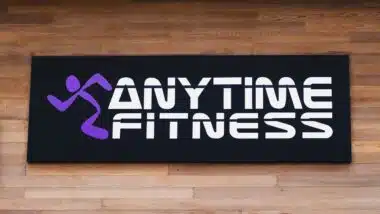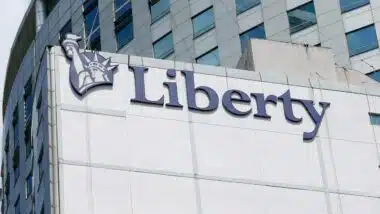
Trulieve has been hit with a class action lawsuit claiming that the marijuana dispensary violated the TCPA by sending spam texts.
What Is a Marijuana Dispensary?
A marijuana dispensary is a location that sells marijuana and marijuana products for recreational or medical use. Dispensaries might sell a range of products, including marijuana flowers, or other products like edibles, marijuana in concentrated form, and other products.
Their legality varies from state to state. Some states allow marijuana to be sold for just medical use, while others allow it to be sold for both medical and recreational use. Still others prohibit the sale of marijuana. Florida is one state that allows the sale of medical marijuana.
High Times explains that marijuana dispensaries exist because federal law does not allow cannabis prescriptions to be filled at pharmacies.
The first medical marijuana dispensary opened in 1992 in San Francisco. It was called the San Francisco Cannabis Buyers Club, explains High Times. Now, more than half of the states in the United States have medical marijuana dispensaries.
High Times goes on to explain that in the case of medical marijuana dispensaries, you will likely need a medical recommendation to purchase products from the dispensary. Once at the dispensary, you will likely need to provide an ID, and if your ID is from out of state, proof of residency.
The process for accessing a recreational dispensary is much simpler. These dispensaries sell marijuana products to anyone over 21. You will likely have to show ID to enter.
Some dispensaries sell marijuana for both medicinal and recreational purposes. In the case of these establishments, you will likely be asked if you are shopping for recreational or medicinal marijuana. Those visitors who are looking for medicinal products will then register with the dispensary and provide their recommendations from a medical professional.
Some dispensaries provide the same products to those customers shopping recreationally as those shopping for medicinal products. However, some dispensaries do make a distinction between which products are offered for medicinal or recreational purposes.
What Is the TCPA?
The Telephone Consumer Protection Act (TCPA) is a federal law that aims to protect consumers from bothersome telemarketing contacts. The law was enacted in 1991, and was updated a number of times, most lately in 2013. The 2013 updates were implemented to better protect consumers from the effects that advancing technology has has on telemarketing. In particular, the new updates limit not only telephone calls and faxes, but text messages, as well.
What Are the TCPA Regulations?
Per the regulations of the TCPA, a business generally must obtain prior, express consent from an individual before sending them telemarketing messages. Phone calls, faxes, and texts aimed at soliciting a customer to purchase goods or services constitute telemarketing.
The TCPA restricts the use of autodialers when sending telemarketing text messages and calls unless a consumers has consented to receive such calls. Similarly, robocalls are also prohibited under the TCPA’s regulations.
The TCPA aims to prohibit businesses from finding loopholes in the law and tricking customers into signing up for telemarketing messages. One of the ways in which the law aims to protect customers is stipulating that a business cannot demand that a customer consent to receive telemarketing messages as a condition of purchasing a product or service. Additionally, a business must ask for a consumer’s consent to send telemarketing messages in a clear and concise way, so as to ensure that a customer is able to make an informed decision when oping into such messaging.
 How Could a Marijuana Dispensary Violate the TCPA?
How Could a Marijuana Dispensary Violate the TCPA?
The cannabis industry is growing rapidly, as more and more states legalize marijuana use for both medical and recreational purposes. Marijuana dispensaries and related businesses are looking for ways to reach out to potential customers.
Forbes explains that 45% of all cannabis users are the tech savvy age group of 25 to 44 year-olds. As cannabis dispensaries attempt to connect to this demographic, they are likely to appeal to them by sending text message and cell phone calls.
In some cases, marijuana dispensaries might even knowingly violate the TCPA in the hopes of making a sale. Some companies may hope that most people would not bother taking action against a TCPA violation, and might feel that potential new business is worth the risk.
Similarly, if a dispensary sends consumers text messages after receiving consent, they may still be in violation of the TCPA if those messages do not include an “opt out” option, or if they do not honor a consumer’s attempts to opt out of messaging.
However, some consumers are fighting back against supposedly illegal spam calls, texts, and faxes by filing TCPA lawsuits against marijuana dispensaries.
The Business Journal reports on a Trulieve lawsuit filed against Florida’s biggest marijuana dispensary. The Florida resident said that Trulieve sent him advertising text messages that he did not agree to receive. Allegedly, he received at least two text messages advertising the company’s products, and offering deals. The man said that he was bothered and inconvenienced by the text messages. According to the Trulieve TCPA lawsuit, he spent “approximately ten minutes investigating the unwanted text messages including how they obtained his number and who [Trulieve] was.
He sought damages allowed by the TCPA on behalf of himself and a proposed Class of thousands of other individuals around the country who he says were similarly affected. In addition to damages, he asked that Trulieve be banned from violating the TPCA in the same fashion again, notes The Business Journal.
How Are TCPA Violations Handled?
The TCPA enables individuals who receive messages that violate the TCPA to see damages, in the form of up to $500 for each negligent violation of the law and up to $1,500 for each willful and knowing violation of the law. An individual has the right to file a TCPA lawsuit if they
How Can You File a TCPA Lawsuit?
Contacting an experienced TCPA lawyer is the best way to find out if you have a TCPA lawsuit. They can help you collect the proper documentation needed to file your claim. The lawyer will help you build a strong case and maximize the amount of compensation that you can receive. If you received multiple messages from the same caller, you may be eligible for additional compensation.
Join a Free Marijuana Dispensary Unwanted Text Messages Lawsuit Investigation
If you received an unsolicited text message, ringless voicemail, robocall, and/or a call with a pre-recorded voice from a marijuana dispensary, you may be able to join a FREE marijuana dispensary unwanted text message class action lawsuit investigation.
This article is not legal advice. It is presented
for informational purposes only.
ATTORNEY ADVERTISING
Top Class Actions is a Proud Member of the American Bar Association
LEGAL INFORMATION IS NOT LEGAL ADVICE
Top Class Actions Legal Statement
©2008 – 2026 Top Class Actions® LLC
Various Trademarks held by their respective owners
This website is not intended for viewing or usage by European Union citizens.















2 thoughts onDid Trulieve Marijuana Dispensary Violate the TCPA?
Add me please
add me in